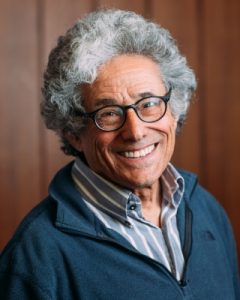
Leon Glass
McGill University
Canada
(Virtual Speaker)
EMBO | EMBL Symposium
This conference will take place at EMBL Heidelberg, with the option to attend virtually. Proof of COVID-19 vaccination or recovery is required for on-site attendance. Please see EMBL’s COVID-19 safety policy for on-site events.
Are you interested in oscillatory phenomena and biological dynamics? At this symposium, multiple disciplines will come together in order to discuss common mechanisms underlying the generation of oscillations.
This meeting provides a unique platform for the emerging new community working at the interface between quantitative biology, complex oscillatory systems, and physics.
Oscillations are abundant – from hormonal oscillations with periods of days and months, to genetic fluctuations in the range of hours (circadian clock, embryonic oscillators), and metabolic and biochemical oscillations in the order of minutes (glycolytic oscillations) and seconds (Calcium-dynamics) – oscillations are central to biology across different temporal and spatial scales.
Please note that due to the ongoing pandemic situation, some speakers may need to join virtually to give their talk, and the programme is subject to change.

McGill University
Canada
(Virtual Speaker)

Brandeis University
USA
(Virtual Speaker)

The University of Texas at Austin
USA
(Virtual Speaker)
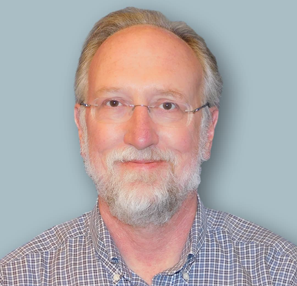
Stanford University School of Medicine
USA
(Virtual Speaker)
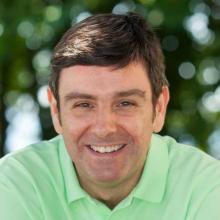
Pompeu Fabra University
Spain
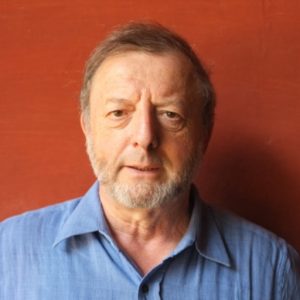
Université Libre de Bruxelles
Belgium
(Virtual Speaker)
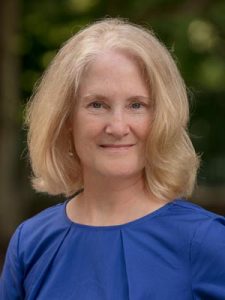
University of California San Diego
USA
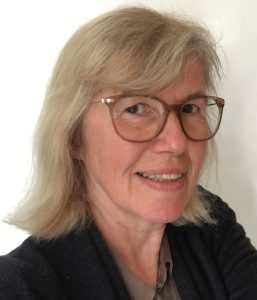
University of Würzburg
Germany

RIKEN Center for Brain Science
Japan
(Virtual Speaker)
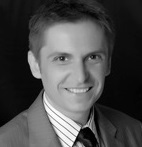
Saint Louis University
USA
(Virtual Speaker)
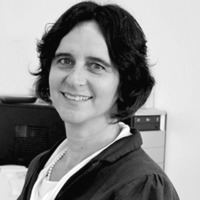
Tel Aviv University
Israel
(Virtual Speaker)
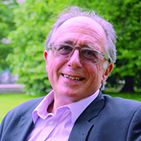
Faculty of Medicine, Paris-Saclay University
France
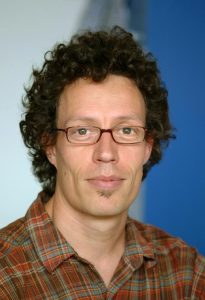
Swiss Federal Institute of Technology Lausanne
Switzerland
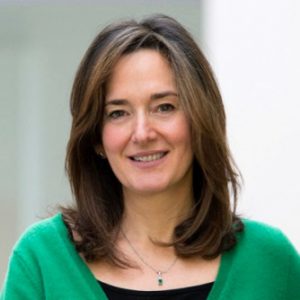
University of Manchester
UK
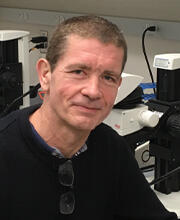
Harvard University
USA
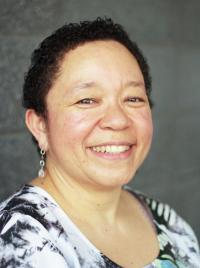
University Health Network
Canada
(Virtual Speaker)

Nagoya University
Japan
(Virtual Speaker)
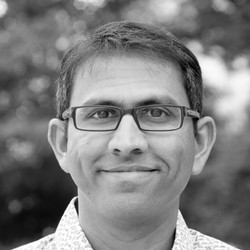
Institute for Theoretical Biology – Humboldt University Berlin
Germany
(Virtual Speaker)
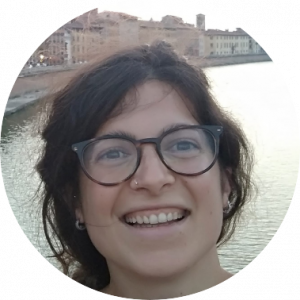
Institute for Theoretical Biology – Humboldt University Berlin
Germany
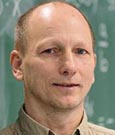
Institute for Theoretical Biology – Humboldt University Berlin
Germany
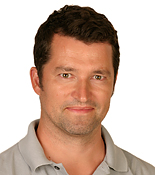
EMBL Heidelberg
Germany

Institute for Theoretical Biology – Humboldt University Berlin
Germany
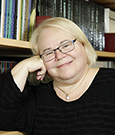
Brandeis University
USA
Got something to say? Tweet it! #EESBioOsc
| Time | Speaker |
|---|---|
| 11:15 – 13:00 | Registration & light lunch |
| 13:00 – 14:00 | Pre-symposium ‘Oscillator Theory for Biologists’ Workshop (on-site participants only) Board lecture by Hanspeter Herzel – Institute for Theoretical Biology – Humboldt University Berlin, Germany |
| 14:00 – 14:30 | Break and change of groups |
| 14:30 – 15:30 | Pre-symposium ‘Oscillator Theory for Biologists’ Workshop hands-on part (on-site participants only) Bharath Ananthasubramaniam – Institute for Theoretical Biology –Humboldt University Berlin, Germany Christoph Schmal – Institute for Theoretical Biology – Humboldt University Berlin, Germany Marta Del Olmo – Institute for Theoretical Biology – Humboldt University Berlin, Germany Hanspeter Herzel – Institute for Theoretical Biology – Humboldt University Berlin, Germany |
| 15:30 – 16:00 | Coffee Break |
| 15:15 – 16:00 | Registration (participants not attending the pre-symposium workshop) |
| 16:00 – 16:15 | Opening Remarks Alexander Aulehla – EMBL Heidelberg, Germany AVAILABLE ON DEMAND AFTER LIVE STREAM |
| Session 1 | |
| Chair: Alexander Aulehla – EMBL Heidelberg, Germany | |
| 16:15- 17:00 | Keynote lecture Degenerate mechanisms in oscillator dynamics Eve Marder – Brandeis University, USA (Virtual Speaker) AVAILABLE ON DEMAND AFTER LIVE STREAM |
| 17:00 – 17:30 | Rhythms in a changing world Noga Kronfeld-Schor – Tel Aviv University, Israel (Virtual Speaker) AVAILABLE ON DEMAND AFTER LIVE STREAM |
| 17:30 – 17:45 | Waves and patterns in the frog egg cytoplasm Lendert Gelens – KU Leuven, Belgium AVAILABLE ON DEMAND AFTER LIVE STREAM |
| 17:45 – 17:50 | Technical buffer |
| 17:50 – 18:35 | Coffee Break |
| 18:35 – 18:50 | But, what are the cells doing? – Image analysis pipeline to follow single cells during somitogenesis in zebrafish embryo Arianne Bercowsky Rama – Swiss Federal Institute of Technology Lausanne, Switzerland AVAILABLE ON DEMAND AFTER LIVE STREAM |
| 18:50 – 19:20 | Data modeling on periodic manifolds: applications to circadian rhythms Felix Naef – Swiss Federal Institute of Technology Lausanne, Switzerland |
| 19:20 – 21:00 | Dinner in Canteen |
| 21:00 – 22:00 | Welcome drinks |
| Time | Speaker |
|---|---|
| 08:30 – 09:45 | Registration & Coffee |
| Session 2 | |
| Chair: Ueli Schibler – University of Geneva, Switzerland | |
| 09:45 – 10:15 | Molecular basis of vertebrate infradian rhythms Takashi Yoshimura – Nagoya University, Japan (Virtual Speaker) AVAILABLE ON DEMAND AFTER LIVE STREAM |
| 10:15 – 10:45 | Circadian clock organization in flies stemming from different latitudes. Are weaker clocks the better clocks? Charlotte Förster – University of Würzburg, Germany AVAILABLE ON DEMAND AFTER LIVE STREAM |
| 10:45 – 11:00 | A transcriptional oscillator to time skin regeneration Helge Grosshans – Friedrich Miescher Institute for Biomedical Research, Switzerland AVAILABLE ON DEMAND AFTER LIVE STREAM |
| 11:00 – 11:05 | Technical buffer |
| 11:05 – 11:45 | Coffee Break |
| 11:45 – 12:15 | Synchronization of the cell cycle and the circadian clock through bidirectional coupling Albert Goldbeter – Université Libre de Bruxelles, Belgium (Virtual Speaker) AVAILABLE ON DEMAND AFTER LIVE STREAM |
| 12:15 – 12:30 | Noisy circadian clocks gate cell division in Anabaena Rinat Arbel-Goren – Weizmann Institute of Science, Israel AVAILABLE ON DEMAND AFTER LIVE STREAM |
| 12:30 – 12:45 | Nanostructures instability driven by the reaction-diffusion mechanism Mikhail Kryuchkov – University of Geneva, Switzerland AVAILABLE ON DEMAND AFTER LIVE STREAM |
| 12:45 – 14:15 | Lunch break |
| Session 3 | |
| Chair: Hanspeter Herzel – Institute for Theoretical Biology – Humboldt University Berlin, Germany | |
| 14:15 – 14:45 | Merging biological and mathematical network oscillation generation mechanisms Frances K. Skinner – University Health Network, Canada (Virtual Speaker) AVAILABLE ON DEMAND AFTER LIVE STREAM |
| 14:45- 15:00 | The Origin and Regulation of Segmentation Clock Oscillation Dynamics in the Mouse Embryo Tomita Takehito – EMBL Heidelberg, Germany AVAILABLE ON DEMAND AFTER LIVE STREAM |
| 15:00 – 15:15 | Multiscale, dynamic and spatially-periodic coordination of gene expression in spinal cord progenitor cells Veronica Biga – The University of Manchester, UK AVAILABLE ON DEMAND AFTER LIVE STREAM |
| 15:15 – 15:20 | Technical buffer |
| 15:20 – 16:05 | Coffee Break |
| 16:05 – 16:35 | The pacemaker of the cell cycle oscillator James E. Ferrell – Stanford University School of Medicine, USA (Virtual Speaker) AVAILABLE ON DEMAND AFTER LIVE STREAM |
| 16:35 – 16:50 | Xenopus embryo injury initiates calcium waves that travel both within and between embryos via ATP signaling Megan Sperry – Wyss Institute at Harvard University, USA (Virtual Speaker) AVAILABLE ON DEMAND AFTER LIVE STREAM |
| 16:50 – 17:20 | Circadian rhythms of gene expression in vivo and in vitro Susan S. Golden – University of California San Diego, USA AVAILABLE ON DEMAND AFTER LIVE STREAM |
| 17:20 – 17:25 | Technical buffer |
| 17:25 – 19:25 | Poster Session 1 (odd numbers) with snacks |
| 19:25 – 21:00 | Dinner in Canteen |
| 21:00 – 22:00 | Networking drinks |
| Time | Speaker |
|---|---|
| 08:30 – 09:45 | Registration & Coffee |
| Session 4 | |
| Chair: Jordi Garcia-Ojalvo Pompeu Fabra University, Spain | |
| 09:45 – 10:15 | Roles of Hes1 oscillations in neural stem cells Ryoichiro Kageyama – RIKEN Center for Brain Science Japan (Virtual Speaker) AVAILABLE ON DEMAND AFTER LIVE STREAM |
| 10:15 – 10:45 | Measuring human circadian rhythms for precision chronomedicine Francis Albert Lévi – Faculty of Medicine, Paris-Saclay University, France AVAILABLE ON DEMAND AFTER LIVE STREAM |
| 10:45 – 11:00 | Cytoskeletal oscillator produces complex wave patterns on the surface of rewired frog oocytes Andrew Goryachev – The University of Edinburgh, UK AVAILABLE ON DEMAND AFTER LIVE STREAM |
| 11:00 – 11:05 | Technical buffer |
| 11:05 – 11:45 | Coffee Break |
| 11:45 – 12:00 | Emergent calcium dynamics in an astrocyte-neuronal network coupled via nitric oxide molecule Bhanu Sharma – South Campus Delhi University, India (Virtual Speaker) AVAILABLE ON DEMAND AFTER LIVE STREAM |
| 12:00 – 12:15 | A series of individual transcriptional pulses produces a periodic pattern of Atonal in the Drosophila eye Francois Schweisguth – Institut Pasteur, France AVAILABLE ON DEMAND AFTER LIVE STREAM |
| 12:15 – 12:30 | lin-4 functions as a temporal morphogen Christopher Hammell – Cold Spring Harbor Laboratory, USA AVAILABLE ON DEMAND AFTER LIVE STREAM |
| 12:30 – 12:35 | Technical buffer |
| 12:35 – 14:00 | Lunch break |
| Session 5 | |
| Chair: Ueli Schibler – University of Geneva, Switzerland | |
| 14:00 – 14:30 | Deconstructing the segmentation clock in vitro Olivier Pourquié – Harvard University, USA AVAILABLE ON DEMAND AFTER LIVE STREAM |
| 14:30 – 14:45 | p53 oscillatory dynamics optimizes DNA repair efficiency by regulating foci formation Mathias Luidor Heltberg – University of Copenhagen, Denmark AVAILABLE ON DEMAND AFTER LIVE STREAM |
| 14:45 – 15:00 | Direct, real time in vivo measurement of distinct circadian clocks in Drosophila Deniz Top – Dalhousie University, Canada AVAILABLE ON DEMAND AFTER LIVE STREAM |
| 15:00 – 15:15 | Group photo |
| 15:15 – 16:00 | Coffee Break |
| 16:00 – 16:30 | Decoding Network Dynamics in Coupled Oscillators István Z. Kiss – Saint Louis University, USA (Virtual Speaker) AVAILABLE ON DEMAND AFTER LIVE STREAM |
| 16:30 – 17:00 | Oscillatory dynamics and hippocampal memory operations Laura Colgin – The University of Texas at Austin, USA (Virtual Speaker) AVAILABLE ON DEMAND AFTER LIVE STREAM |
| 17:00 – 17:15 | On the robustness of the cyanobacterial circadian clock Sophie de Buyl – Vrije Universiteit Brussel, Belgium AVAILABLE ON DEMAND AFTER LIVE STREAM |
| 17:15 – 17:20 | Technical buffer |
| 17:20 – 19:15 | Poster Session 2 (even) with snacks |
| 19:15 – 20:45 | Dinner in Canteen |
| 20:45 – 21:45 | Networking drinks |
| Time | Speaker |
|---|---|
| 08:30 – 09:45 | Registration & Coffee |
| Session 6 | |
| Chair: Hanspeter Herzel – Institute for Theoretical Biology – Humboldt University Berlin, Germany | |
| 09:45 – 10:15 | Differential phase register of Hes1 oscillations with mitoses in breast cancer cells underlies their cell cycle heterogeneity Nancy Papalopolou – University of Manchester, UK AVAILABLE ON DEMAND AFTER LIVE STREAM |
| 10:15 – 10:30 | Modelling gene regulation oscillatory dynamics during the cell cycle in single cells Nacho Molina – Institute of Genetics and Molecular and Cellular Biology, France AVAILABLE ON DEMAND AFTER LIVE STREAM |
| 10:30 – 11:00 | Oscillations as organizers in bacterial populations Jordi Garcia-Ojalvo – Pompeu Fabra University, Spain AVAILABLE ON DEMAND AFTER LIVE STREAM |
| 11:00 – 11:05 | Technical buffer |
| 11:05 – 11:45 | Coffee Break |
| 11:45 – 12:00 | Functional analysis of multiscale oscillations in insect olfactory receptor neurons Monika Stengl – University of Kassel, Germany AVAILABLE ON DEMAND AFTER LIVE STREAM |
| 12:00 – 12:15 | Signalling centre vortices control periodic activation waves and coordinate Dictyostelium morphogenesis Hugh Ford – University College London, UK AVAILABLE ON DEMAND AFTER LIVE STREAM |
| 12:15 – 12:30 | Stress discrimination by body-wide, stochastic DAF-16/FoxO nuclear translocation pulses Burak Demirbas – AMOLF, The Netherlands AVAILABLE ON DEMAND AFTER LIVE STREAM |
| 12:30 – 13:15 | Keynote lecture Mechanism for the self-termination of paroxysmal rhythms Leon Glass – McGill University, Canada (Virtual Speaker) AVAILABLE ON DEMAND AFTER LIVE STREAM |
| 13:15 – 13:30 | Closing Remarks and Poster Prize |
| 13:30 – 14:00 | Packed Lunch |
| 14:00 | Departure |
On-site Registration Fees include admission, conference materials, COVID-19 safety measures, meals and coffee breaks. Participants are expected to book and pay their own accommodation and travel expenses.
Virtual Registration Fees include access to all of the talks (livestreamed and on demand) and facility to submit questions.
| On-site Academia | €700 |
| On-site PhD Student | €600 |
| On-site Industry | €900 |
| Virtual Academia | €175 |
| Virtual PhD Student | €125 |
| Virtual Industry | €225 |
NO visa support letters will be issued until payment of the registration fee is confirmed.
Accredited journalists may be eligible to register for a reduced press rate or in some cases for complimentary registration. Registrants may be required to provide accreditation or equivalent proof of press membership after registration. Please contact Raili Pall for more information.
Registration will be on a first-come first-served basis. Your place can only be confirmed after payment of the registration fee. If you are added to our waiting list, please consider taking advantage of our offerings to participate virtually.
On-site participants: Types of payments accepted are international bank transfers and credit card payments.
Virtual participants: We are only able to accept card payments. In exceptional cases we can accept bank transfers. Please contact events@embl.de for details.
Only registered participants attending the on-site event are eligible to submit an abstract. Abstracts will not be accepted from virtual participants.
After you have logged in and successfully registered, you will receive an email asking you to submit your abstract. Click on the link provided and enter your abstract in the text box provided. Alternatively you can submit your abstract by clicking on the link on the confirmation page directly after registering. The same login credentials are used for both processes.
Please note:
Title: The title should not exceed 20 words. Only the first word of the title should start with a capital letter and the rest of the title should be in lowercase.
Authors and Affiliations: Please fill in the author’s details as requested in the online form. The compulsory details are: First Name, Last Name, Organisation Name (Affiliation or Company), Country and Email. Mark only one author as the role of First author and please don’t forget to indicate who will be presenting. The order of the authors will be listed as follows: First Author, Co-First Author (alphabetically if multiple), co-author(s) (in the order added by the submitter).
Presentation Types: When submitting your abstract, you can apply for an oral or poster presentation. A selection process will take place with the results announced 2-3 weeks after the abstract submission deadline.
Please check our FAQs pages for further information on how to submit an abstract.
Limited financial assistance is provided by the EMBL Advanced Training Centre Corporate Partnership Programme and EMBO in the form of both registration fee waivers and travel grants. Availability is limited to participants attending on-site events in Heidelberg and will be indicated during the abstract or motivation letter submission process.
Your place in the meeting is only confirmed by paying the registration fee, which is mandatory even when receiving a fee waiver.
The fee waiver will cover the registration sum that you have paid to attend the course or conference.
The travel grant will cover the cost of travel (airfare, train, bus, taxi, accommodation, visa, and/or registration fees*) and is provided up to specified caps which are normally as follows:
– up to €400 for participants travelling to an EMBL Course, EMBL Conference or EMBO|EMBL Symposium from within Europe.
– up to €1000 for participants travelling to an EMBL Course, EMBL Conference or EMBO|EMBL Symposium from outside Europe.
– up to €500 for any participant travelling to an EMBO Practical Course or EMBO Workshop.
– up to €1000 for any participant working in Chile, India, Singapore or Taiwan travelling to an EMBO Practical Course or EMBO Workshop.
*Registration fees are only covered for EMBO Practical Courses or EMBO Workshops
The organisers may reduce the grant cap to accommodate more participants. Recipients will be notified of their travel cap amount when they are informed of the outcome of their application. Original receipts must be provided with your signature for all costs incurred within two months of completion of travel. Scanned copies cannot be accepted.
You may apply for financial assistance when submitting your abstract for conferences. In your application, you will be asked to answer questions regarding why your lab cannot fund your attendance and how your attendance will make a difference to your career. Application for financial support will not affect the outcome of your registration application.
The scientific organisers will select the recipients of all financial assistance during the motivation letter or abstract selection process. Results will be announced approximately 6-8 weeks before the event start date, however for some events this may be delayed. Selection results do not impact your admission to the meeting. Selection is based on your current work or study location, the reasons for needing financial support and the impact this event will have on your career.
Costs will be reimbursed after the meeting only once a reimbursement form and original receipts (from travel costs) have been received.
See our list of external funding opportunities and information on attending a conference as an event reporter.
For further information about financial assistance please refer to the FAQ page.
Accommodation is not included in the conference registration fee.
As further changes in our events are possible due to COVID-19, you should book flights, trains and hotels with flexible options and favorable cancellation conditions.
The hotels below have rooms on hold for participants until Saturday 5 February 2022, in some cases at special rates. Please quote the booking code EES22-01 and confirm the exact price of the room with the hotel directly.
Conference shuttle buses are free of charge for participants and depart from designated bus stops near the hotels to EMBL and back, mornings and evenings.
The bus stops for this conference are:
View Conference shuttle bus stops and hotels for this conference on a larger map.
Address: EMBL, Meyerhofstraße 1, 69117 Heidelberg, Germany. For further information on getting to EMBL Heidelberg visit Public Transportation to the Venue. For information about accommodation and local transportation please refer to the FAQ page.
All meals and coffee breaks are included in the registration fee. Our catering staff will prepare a wide variety of vegetarian meals, meat and fish dishes, soups, pasta, fresh fruit and vegetables, as well as a variety of desserts.
Please wear your badge at all times when serving yourself.
No food or drinks are allowed in the auditorium.
There are lockers available next to the stairs leading down into the Auditorium. You will find some of those equipped with sockets to charge your smartphone/tablet etc.
In most places the electricity is 220 volts AC (50 cycles). An adaptor and a plug that fits the German socket may be needed for your appliances/laptop (i.e. American, Japanese, etc.). A USB charging station for electronic devices is available at the registration desk.
EMBL Merchandise is available on Mon – Thu (9 am – 12 pm). If you are interested in purchasing an EMBL souvenir (products presented in the glass display in the registration area), please ask at the registration desk for more information.
Please read EMBL’s COVID-19 safety policy for on-site events.
Do not smoke in any EMBL building.
Eating and drinking is prohibited in the Auditorium and all laboratories.
Do not enter any restricted areas or the laboratories unless instructed to do so.
If first aid is required …
In case of fire …
Beyond first aid…
Please remember to bring your own medication, if needed, to the conference. Note that the next pharmacy is a 4-minute drive from the EMBL, but for many medications you will be required to see a doctor to get a prescription.
Ensure in advance that your medical insurance will cover you during your visit in the event that you do need to see a doctor while in Heidelberg. In any case, the EMBL Course and Conference Office will assist you to get to the pharmacy and a doctor of your choice if necessary.
Wi-Fi is available everywhere on the premises (no password required), just log on to ATC-Guest. The eduroam network (secure, world-wide roaming access service developed for the international research and education community) is also available.
‘’Lost and Found’’ are kept at the registration desk until the end of the conference.
There are lockers available on-site to store your luggage, which require a 2 EURO coin to operate. There is another luggage room on level E0, which is free to use but remains unlocked during the conference.
There is a nursing room available in the ATC Rooftop Lounge on level A29.
During the conference an EMBL Photographer may be taking photographs. If you would not like to appear in these, please inform the photographer or a member of the Course and Conference Office.
We can help print your boarding passes/train tickets. Please send it to events@embl.de and collect your print-outs at the registration desk.
There is a room for prayer, mediation and yoga located on level E0 behind the Auditorium. Please be respectful of other participants using the room.
A variety of activities in Heidelberg can be found on this website: www.heidelberg-marketing.com
During the event we provide conference shuttle busses to and from EMBL. In addition, there is the public bus 39A that serves the EMBL campus and taxis can be easily booked at any time. Information on the conference shuttle busses can be found on the individual event website and more detailed information on travelling to EMBL can be found on our Travel Information page.
| English | German |
|---|---|
| Hello | Hallo |
| Goodbye | Auf Wiedersehen |
| Good morning | Guten Morgen |
| Good afternoon | Guten Tag |
| Good evening | Guten Abend |
| Good night | Gute Nacht |
| I’m sorry | Tut mir leid |
| Excuse me… | Entschuldigen Sie |
| How are you? | Wie gehts? |
| I’m fine thanks. And you? | Mir geht es gut , danke, und dir/Ihnen? |
| What is your name | Wie heisst du? Wie heissen Sie? |
| My name is | Ich heisse |
| Do you speak English | Sprechen Sie Englisch? |
| I don’t understand | Ich verstehe nicht |
| Please speak more slowly | Können Sie bitte langsamer sprechen |
| Thank you | Dankeschön |
| Where is the toilet? | Wo ist die Toilette? |
| Please call me a taxi | Bitte rufen Sie mir ein Taxi |
| How do I get to….? | Wie komme ich zum/zur…..? |
| A beer/two beers please | Ein Bier/zwei Bier bitte |
| A glass of red/white wine please | Ein Glas Rot/Weisswein bitte |
| The menu, please | Die Speisekarte, bitte |
| Is there a local speciality? | Gibt es eine Spezialität aus dieser Gegend? |
| I’m Vegetarian | Ich bin Vegetarier |
| It was delicious | Es war hervorragend |
| The bill, please | Die Rechnung, bitte |
| I have a headache | Ich habe Kopfschmerzen |
| I have a sore throat | Ich habe Halsschmerzen |
| My stomach hurts | Ich habe Magenschmerzen |
| I’m allergic to | Ich bin allergisch gegen |
| I need a doctor who speaks English | Gibt es einen Arzt, der Englisch spricht? |
Please note that only on-site participants are able to submit abstracts and participate in the poster sessions.
We are using an event platform for this conference. More information about the platform will be shared ahead of the conference.
Additional information can be found in our Code of Conduct.
It is important to stay healthy and move around, especially when you are attending an event virtually. We have put together a few coffee break stretches and yoga videos in the conference platform for you to enjoy during the event.
Please use the Q&A function in the event platform.
If you have any other questions, you can go to the Help Desk in the event platform. Click on ‘more’ on the top menu and click Help Desk.
The programme is planned based on the Europe/Berlin time zone, unless otherwise stated. Please take your time zone into consideration when planning your attendance.
No, you will need to have a valid negative test upon arrival on your first day of attendance only. Antigen tests are valid for 24 h and PCR tests are valid for 48 h. Please see FAQ on testing in Heidelberg for more information on finding a test centre.
Only FFP2 masks are allowed for indoors use and must be worn during the whole event (except while eating or drinking during the breaks).
Proof is accepted in paper or digital form, provided it meets the criteria listed under points 1, 2 and 3. Photographs of paper documents do not count as valid digital proof for the purposes of checks by the transport company or by the police authorities conducting border controls. Digital documentation needs to have been issued electronically by the authorised issuer and transmitted electronically to the authorised holder.
Please note that these are general requirements pursuant to the Coronavirus-Einreiseverordnung. For a digital COVID certificate in line with the EU Regulation on the EU Digital COVID Certificate, additional requirements may have to be met. Further information can be found on the Coronavirus: Frequently Asked Questions website of the German Federal Ministry of the Interior and Community
Regardless if you are coming from an EU country, please check the Paul Ehrlich Institute website for recognised vaccines to see if your vaccination status is considered valid in Germany. You will find information such as which vaccines (and combinations) are approved, the number of doses required for a complete vaccination protection and the length of time that must pass after vaccination.
The test to prove the previous infection must have been carried out by laboratory diagnostics using nucleic acid detection (PCR, PoC-PCR or other methods of nucleic acid amplification technology). At least 28 days must have passed since getting a positive test. Information on recovery can be found (in German) on the Robert Koch Institute website.
As of 1 February 2022, the validity of vaccination certificates in Germany is 270 days (roughly 9 months), if no booster vaccination has been administered after a completed basic immunisation.
The validity of proof of recovery in Germany is 90 days (roughly 3 months). At least 28 days must have passed since getting a positive test.
If you are arriving from a high-risk area, yes, you have to register at the travel portal (www.einreiseanmeldung.de) before entering the country. You must carry the confirmation with you, but you do not need to quarantine. It is important that you upload your proof of vaccination or recovery at the same time, otherwise you would need to quarantine on arrival.The list of countries marked as a high-risk area are regularly updated on the Robert Koch Institute website. You can find additional information on the obligation to register and exemptions in the FAQs on Digital Registration on Entry, the obligation to furnish proof and quarantine on entry.
Participants travelling from a non-EU country, who therefore have no access to a European Union Digital Covid Certificate (EUDCC), will be granted access upon providing the same written proof they used to enter Germany, which should be a verifiable proof of vaccination / recovery that meets the validity requirements in Germany (please see previous questions).
Please note that Baden-Württemberg state accepts only digitally verifiable proof for the 2G rule such as a QR code. The primary means of verifying COVID vaccination status in Germany is through the “EU Digital Covid Certificate”. This can be obtained from the local pharmacies by showing them your vaccination papers together with an ID document. The pharmacy will give you the printouts which you can then enter into a mobile application ( Corona-Warn-App).
It is not possible to get a COVID-19 test while on site at EMBL. Professional testing stations are readily accessible at many convenient locations throughout Heidelberg. Additionally, many testing tents are available throughout the city.
These testing stations offer lateral flow antigen tests that are free of charge, and on a ‘walk-up’ or appointment basis for all, including visitors. Results and certificate are sent by email, within approximately 20 minutes. Please note, some testing stations offer PCR tests as well, however these require a fee and is to be paid by the participant.
If you are staying at the ISG Hotel, the closest testing station is located on the parking lot in front of the hotel. Another one can be found at Louise-Ebert-Zentrum (just 2 minutes walk or 150m from the ISG Hotel).
Local restrictions change depending on the current pandemic situation. Before entering a building, you should be able to see signs with admittance rules that will mention 2G or 3G.
A negative rapid antigen test not older than 24 h or PCR test not older than 48 h is required as a test. Please bring your CovidPass and ID wherever you go and make sure to have enough FFP2 masks. Additionally please find here the current local Public transportation requirements (in German).
Information on the COVID measures and travel restrictions in place in European countries can be found on the following websites: https://www.auswaertiges-amt.de/en/coronavirus/2317268 and https://reopen.europa.eu/en. These websites also contain information on what personal information and documents you will need to have with you to travel.
Please find additional information including FAQs, terms and conditions, COVID-19 safety policy and travelling to EMBL on our Information for Participants page.
Bronze sponsor
Media partners
Development, a The Company of Biologists journal
EMBO Journal, an EMBO Press journal
International Union of Biochemistry and Molecular Biology
Open Biology, a Royal Society journal
Sponsorship opportunities
We offer a variety of event sponsoring possibilities, with the flexibility to select a set sponsorship package or combine individual sponsorship options to suit your event budget. Discounts are available for companies sponsoring multiple events at EMBL Heidelberg. View other conferences, or contact sponsorship@embl.de for further information on sponsoring possibilities.
If you are interested in becoming a media partner of this event, please visit our media partnerships webpage.
EMBL wishes to warn sponsors of EMBL conferences and courses of fraudulent schemes purporting to offer sponsorship opportunities on behalf of EMBL or affiliated with EMBL officials. One current scam campaign of which we are aware is conducted using the name ‘Judy Eastman’ (judy@gopcontact.a2hosted.com) and entails approaches to sponsors offering sponsorship opportunities on EMBL’s behalf. Please be kindly advised that all relevant communication regarding sponsorship of EMBL conferences, symposia and courses is handled by EMBL directly and is sent from an official EMBL account. EMBL does not work with any external providers on sponsorship acquisition.
Please also note that:
Suspicious communications purportedly from, for or on behalf of EMBL should be reported to EMBL at the following email address sponsoring@embl.de.
EMBO | EMBL Symposia promote scientific communication and collaboration in the European research area. They provide scientists with a platform to discuss and exchange ideas on forward-looking topics and new developments in the life sciences.
Topics emphasise upcoming developments and the interdisciplinary nature of related fields. Jointly funded and organised by EMBO and EMBL – and complementary to their respective courses, workshops, and conference programmes – the symposia promote scientific communication and collaboration.
All symposia are held in the EMBL Advanced Training Centre (ATC) in Heidelberg, Germany, or virtually.
Date: 6 - 9 Mar 2022
Location: EMBL Heidelberg and Virtual
Venue: EMBL Advanced Training Centre
Deadline(s):
Abstract submission: Closed
Registration (On-site): Closed
Registration (Virtual): Closed
Organisers:
Contact: Raili Pall